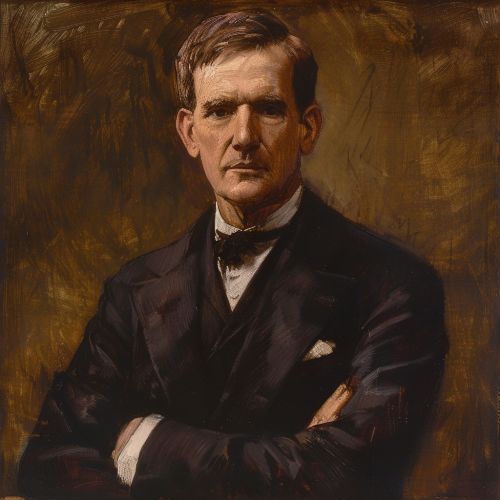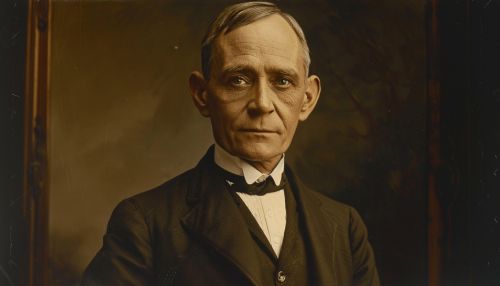John Watson: Difference between revisions
(Created page with "== Early Life and Education == John Broadus Watson was born on January 9, 1878, in Travelers Rest, South Carolina. He was the fourth of six children in a family that struggled financially. His father, Pickens Butler Watson, was an alcoholic and left the family when John was thirteen years old. His mother, Emma Kesiah Watson, was a devout Baptist who imposed strict religious discipline on her children. Despite these challenges, Watson excelled academically and was admitt...") |
No edit summary |
||
| Line 17: | Line 17: | ||
Watson's most famous experiment, conducted with his graduate student Rosalie Rayner, was the [[Little Albert experiment]] in 1920. In this study, they conditioned a young child to fear a white rat by pairing the rat with a loud, frightening noise. This experiment demonstrated that emotional responses could be conditioned in humans, supporting Watson's behaviorist theory. | Watson's most famous experiment, conducted with his graduate student Rosalie Rayner, was the [[Little Albert experiment]] in 1920. In this study, they conditioned a young child to fear a white rat by pairing the rat with a loud, frightening noise. This experiment demonstrated that emotional responses could be conditioned in humans, supporting Watson's behaviorist theory. | ||
[[Image:Detail-96261.jpg|thumb|center|Portrait of John Watson, a prominent psychologist known for his work in behaviorism.|class=only_on_mobile]] | |||
[[Image:Detail-96262.jpg|thumb|center|Portrait of John Watson, a prominent psychologist known for his work in behaviorism.|class=only_on_desktop]] | |||
=== Later Career and Contributions === | === Later Career and Contributions === | ||
Latest revision as of 18:59, 4 July 2024
Early Life and Education
John Broadus Watson was born on January 9, 1878, in Travelers Rest, South Carolina. He was the fourth of six children in a family that struggled financially. His father, Pickens Butler Watson, was an alcoholic and left the family when John was thirteen years old. His mother, Emma Kesiah Watson, was a devout Baptist who imposed strict religious discipline on her children. Despite these challenges, Watson excelled academically and was admitted to Furman University at the age of 16.
At Furman University, Watson earned his master's degree in 1900. He then pursued further studies at the University of Chicago, where he was influenced by the work of John Dewey, a prominent philosopher and psychologist. Watson completed his Ph.D. in psychology in 1903 under the supervision of James Rowland Angell and Henry Herbert Donaldson. His dissertation focused on the relationship between brain myelination and learning ability in rats.
Academic Career
Early Research
After completing his Ph.D., Watson joined the faculty at the University of Chicago, where he continued his research on animal behavior. He conducted experiments on white rats, studying their learning processes and maze navigation abilities. His work contributed to the emerging field of comparative psychology, which examines the similarities and differences in behavior across species.
Behaviorism
In 1908, Watson accepted a position at Johns Hopkins University as a professor of psychology. It was here that he began to develop his theory of behaviorism, which posits that all behaviors are acquired through conditioning. Watson believed that psychology should focus on observable behaviors rather than internal mental states, which he considered to be subjective and unscientific.
Watson's most famous experiment, conducted with his graduate student Rosalie Rayner, was the Little Albert experiment in 1920. In this study, they conditioned a young child to fear a white rat by pairing the rat with a loud, frightening noise. This experiment demonstrated that emotional responses could be conditioned in humans, supporting Watson's behaviorist theory.


Later Career and Contributions
In 1920, Watson's academic career was abruptly ended due to a scandal involving his affair with Rosalie Rayner. He was forced to resign from Johns Hopkins University and subsequently left academia. Watson then entered the field of advertising, where he applied his behaviorist principles to marketing and consumer behavior. He worked for the J. Walter Thompson advertising agency and became a successful executive.
Despite his departure from academia, Watson continued to influence the field of psychology. His book, "Behaviorism," published in 1924, outlined his theories and methods. He argued that psychology should be a purely objective, experimental branch of natural science, with the goal of predicting and controlling behavior. Watson's ideas laid the groundwork for B.F. Skinner's later work on operant conditioning and had a lasting impact on the development of behavioral psychology.
Personal Life
Watson married Mary Ickes in 1904, and they had two children, John and Mary. However, their marriage ended in divorce in 1920 following the scandal with Rosalie Rayner. Watson married Rayner later that year, and they had two sons, William and James. Watson's personal life was marked by his strict behaviorist principles, which he applied to his own children. He believed that children should be treated as small adults and discouraged emotional expressions such as hugging and kissing.
Legacy
John Watson's contributions to psychology were significant and far-reaching. His emphasis on observable behavior and experimental methods helped to establish psychology as a scientific discipline. Watson's work influenced various fields, including education, psychotherapy, and advertising. His ideas also paved the way for the development of cognitive-behavioral therapy (CBT), which combines behaviorist principles with cognitive psychology.
Despite the controversy surrounding some of his methods, particularly the Little Albert experiment, Watson's legacy endures. His work continues to be studied and debated by psychologists, and his influence can be seen in contemporary approaches to understanding and modifying behavior.
See Also
- Behaviorism
- Little Albert experiment
- B.F. Skinner
- Comparative psychology
- Operant conditioning
- Cognitive-behavioral therapy
